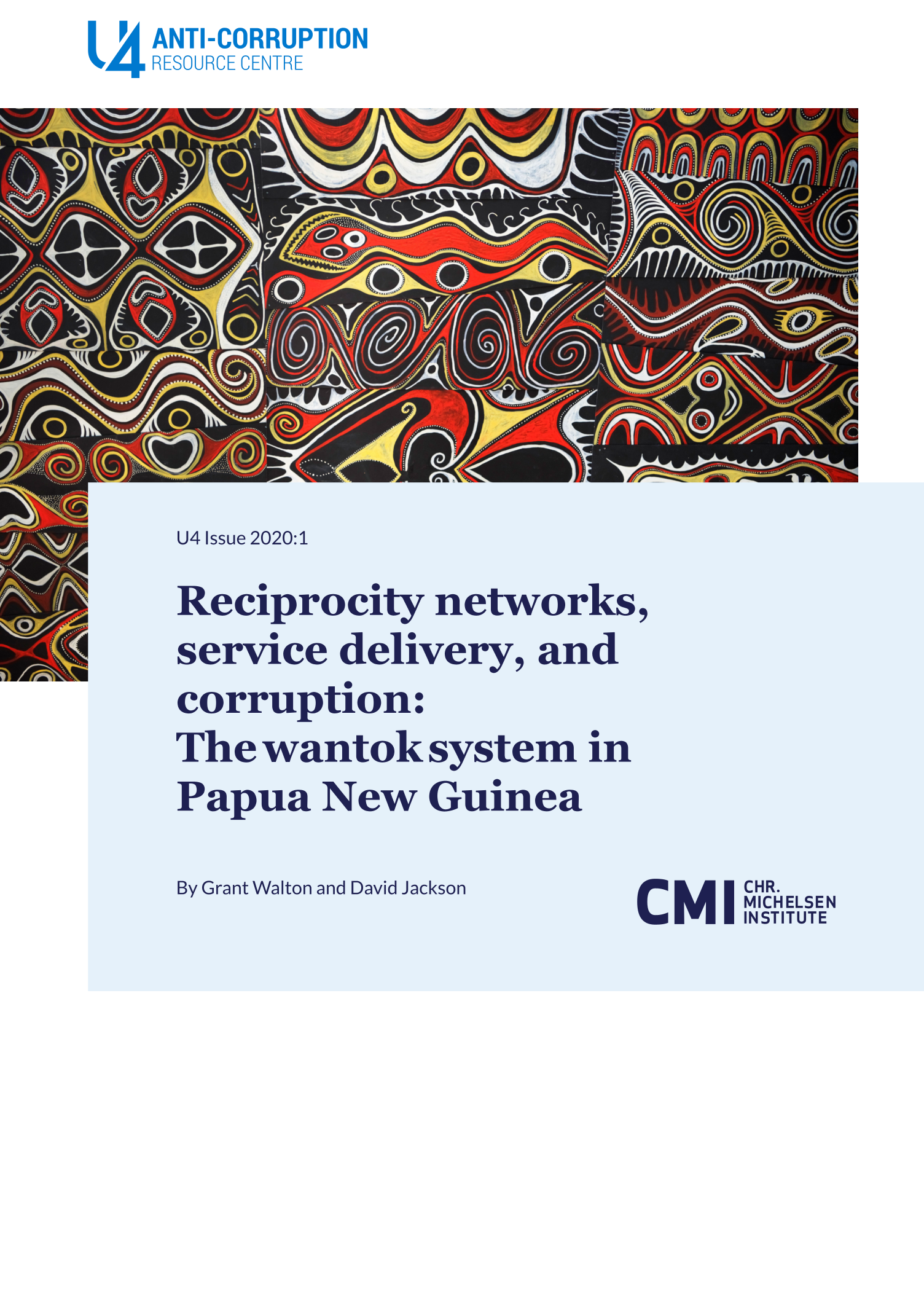Main points
- Informal systems of reciprocity (ISRs) are informal social networks underpinned by reciprocal obligations linking families, friends, colleagues, and associates. ISRs are found in all societies.
- During times of crisis these networks can provide critical support, ensuring that people have somewhere to sleep, food to eat, and access to other essential resources. However, ISRs can also present corruption risks, particularly when public servants and other elites direct state resources to their own ISR networks and exclude people outside these cliques.
- In Papua New Guinea (PNG) social networks are rooted in the wantok system. Wantok means ‘same language’ or ‘one talk’ in Tok Pisin (the country’s lingua franca) and refers to a reciprocal relationship of favours between kin and community members.
- To develop programmes and policies that can contribute to reducing corruption in public service delivery programmes, practitioners need to understand (1) the broader environment of accountability, (2) how the wantok system is structured, and (3) how individual public officials relate to pressures from wantok networks.
- Such analysis can reveal the types of additional interventions required to mitigate corruption and improve service delivery.
- As the nature of ISRs vary, practitioners need to embrace diverse responses to the challenges ISRs can present, even within the same country or region. One-size-fits-all responses will likely cause more problems than they solve.

